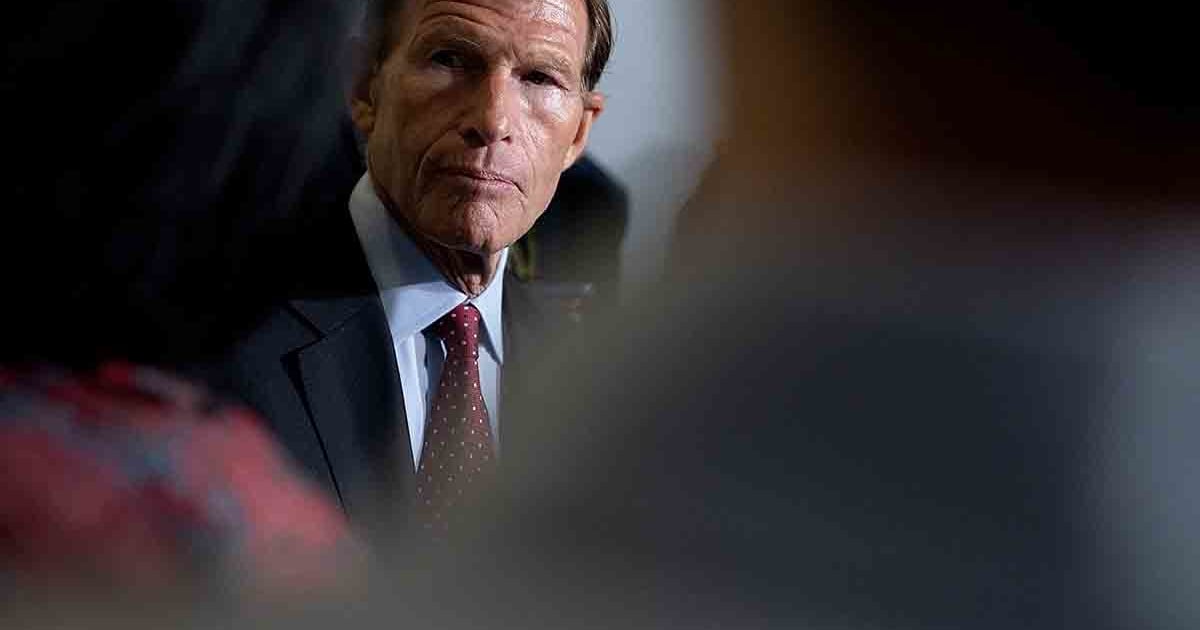
Sen. Richard Blumenthal, D-Conn., earlier this week said he planned to ask the Federal Trade Commission, as well as state authorities, to investigate Ford Motor Co.’s electric vehicle certification program over potential violations of franchise laws in what he labeled an “egregious treatment” of dealers.
Blumenthal joined a bipartisan group of Connecticut state legislators in criticizing the plans during a virtual press conference that also included a top-ranking member of the Connecticut Automotive Retailers Association. The lawmakers called on Ford to again delay a Dec. 2 deadline for dealers to opt-in to the program.
“I’m convinced there’s a case that needs to be investigated here,” Blumenthal said, saying the issue was of “profound” public interest. “I just think Ford is making a terrible mistake here if it persists in this approach.”
Ford, in a statement, said it would not extend the deadline.
“The voluntary program empowers our dealers on when and how to enroll and we understand that some dealers operating in markets with limited EV penetration may chose not to enroll in this round,” Ford spokesperson Marty Günsberg said in an emailed statement. “For these dealers, Ford is offering a second entry point in 2025 as Ford’s EV production scales rapidly. We are confident that we will have sufficient dealer enrollments for this round to serve our customers nationally.”
Additionally, Günsberg said Ford “does not believe the voluntary program violates Connecticut’s franchise laws.”
The certification program, rolled out to dealers in September, would require them to invest up to $1.2 million on chargers, staff training and new sales standards to overhaul the retail experience to be able to sell future EVs. Dealers can choose to spend $500,000 instead but would be allowed to sell no more than 25 EVs a year.
Ford has noted that the investment figures could vary based on federal and state incentives.
Retailers who elect not to invest would be limited to selling only gasoline-powered models and hybrids.
Connecticut State Rep. Roland Lemar, a Democrat, said he was concerned about the price, which is more than what other brands have asked their networks to spend. He wants the company to rework major pieces of the program.
“They need to roll back this contract language and should not, in any circumstance, hold our dealers to a Dec. 2 deadline,” he said. “If they don’t, I can assure them … that there will be repercussions at both the state and federal level.”
Sen. Heather Somers, R-Conn., said she had “deep and grave concerns” about the program.
“Ford is attempting in no secret means to undermine Connecticut’s franchise system,” she said. “The amount of investment required for our local dealers is staggering.”
The automaker spoke with about 400 dealers over three months in crafting the program with input from the Ford National Dealer Council, as well as other dealer advisory boards.
“It is our view, that although the blueprint that was announced in Las Vegas is far from perfect, it is a much better starting point than where many other automakers are going,” Tim Hovik, chairman of the National Dealer Council and Marty Duncan, chairman of the National Select Ford Dealer Council, co-wrote in a recent op-ed.
But the program has been met with resistance among a number of state dealer associations.
The Connecticut Automotive Retailers Association has joined at least 13 other state groups in sending letters to Ford opposing the plan, according to Jeff Aiosa, the association’s legislative co-chair.
He said the association is concerned that the dealers who do not opt in to the program would be prohibited from selling future EVs.
“Dealers look at their sales and service agreements with the manufacturer as a partnership to represent all the brand’s products as long as they’re in good standing,” Aiosa told Automotive News. “To unilaterally change that agreement for a program is patently unfair.”